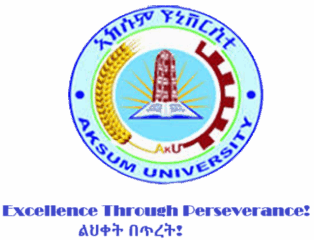📚 College of Social Science and Languages Administration
Welcome to the College of Social Science and Languages at Aksum University! Our dedicated team fosters academic excellence, critical thinking, and cultural understanding across a diverse range of disciplines, from humanities and social sciences to languages and communication arts.
We’re committed to:
- Promoting interdisciplinary research and education
- Cultivating effective communication and analytical skills
- Contributing to societal understanding and cultural preservation
We collaborate closely with our faculty, students, and community partners to offer programs that are relevant to national development, societal needs, and global challenges. Our efforts are aimed at producing graduates who are intellectually curious, socially responsible, and globally aware citizens.
👤 Administrative Structure – Click to Learn More!
Explore the key roles within our leadership team:
Provides overall leadership and strategic direction for the College, promoting its vision in social sciences, humanities, and language studies.
Oversees all academic programs, curriculum development, and quality assurance across the College’s various departments, ensuring high educational standards.
Manages the College’s budget and expenditures, ensuring efficient allocation of resources for academic programs, research initiatives, and administrative needs.
Handles staff recruitment, welfare, and general administrative services within the College, supporting a productive work environment.
Facilitates research projects, promotes interdisciplinary collaborations, and coordinates community outreach programs that leverage social science and language expertise for societal benefit.
Ensures that academic standards and program quality are met and maintained across all departments, focusing on pedagogical effectiveness, research integrity, and student learning outcomes.
Roles and Responsibilities
🎓 Academic Management – Explore Our Departments!
The College of Social Science and Languages offers a wide array of undergraduate and postgraduate programs designed to equip students with critical thinking, analytical, and communication skills. Click on a department to learn more:
- B.A. in Geography and Environmental Studies
- M.A. in Environmental Management
- M.A. in Climate Change and Disaster Risk Management
- B.A. in Political Science and International Relations
- M.A. in International Relations and Diplomacy
- M.A. in Public Policy
- B.A. in Journalism and Communication
- M.A. in Mass Communication
- B.A. in Theatrical Arts
- (Specific programs may vary based on curriculum)
- B.A. in Philosophy
- (Specific programs may vary based on curriculum)
- LL.B. in Law
- LL.M. in Public Law
- LL.M. in Private Law
- B.A. in English Language and Literature
- M.A. in English Language Teaching (ELT)
- M.A. in Literature in English
- B.A. in Tigrigna Language and Literature
- (Specific programs may vary based on curriculum)
- B.A. in Geez Language and Literature
- (Specific programs may vary based on curriculum)
- B.A. in Civics and Ethical Education
- M.A. in Civics and Ethical Studies
Key Academic Responsibilities:
- Coordinating program development, ensuring relevance to societal needs and national educational goals.
- Managing course scheduling and faculty assignments to optimize teaching and learning experiences.
- Supervising curriculum review, development, and accreditation processes to ensure quality and innovation.
- Supporting faculty development, promoting diverse pedagogical approaches, and evaluating performance.
- Managing student admissions, academic records, and graduation processes in coordination with university-level offices.
💼 Administrative Operations
- Developing and managing the College’s annual budget in line with university policies and strategic priorities, particularly for research grants, cultural events, and community outreach programs.
- Overseeing procurement, infrastructure development (e.g., specialized labs, media studios, performance spaces), and efficient resource utilization for academic, research, and administrative needs across all departments.
- Implementing university-wide administrative policies and procedures to ensure smooth operations and compliance.
- Facilitating effective communication and collaboration between departments and with other university units.
👥 Student Services
- Assisting students with academic advising, course selection, and registration processes, including guidance on internships, research projects, and community engagement initiatives.
- Organizing student orientations, career guidance (e.g., in research, public service, media, teaching, law, environmental sectors), and opportunities for practical experience.
- Addressing student concerns, promoting student welfare, and fostering an inclusive and supportive learning environment that encourages critical thinking, cultural appreciation, and ethical leadership.
- Supporting student organizations and extracurricular activities related to social sciences, languages, and the arts.
🔬 Research and Community Engagement
- Encouraging staff and student-led research in areas critical to social development and cultural understanding in Tigray, Ethiopia, such as historical preservation, linguistic studies, political analysis, and media ethics.
- Establishing strong partnerships with local communities, cultural institutions, government bodies, and NGOs to foster collaborative research, provide consultancy, and facilitate knowledge transfer.
- Hosting academic conferences, public lectures, cultural events, and outreach programs that contribute to social discourse, promote peace, and address real-world challenges in Ethiopia and beyond.
- Facilitating the publication and dissemination of research findings to inform policy and practice.
